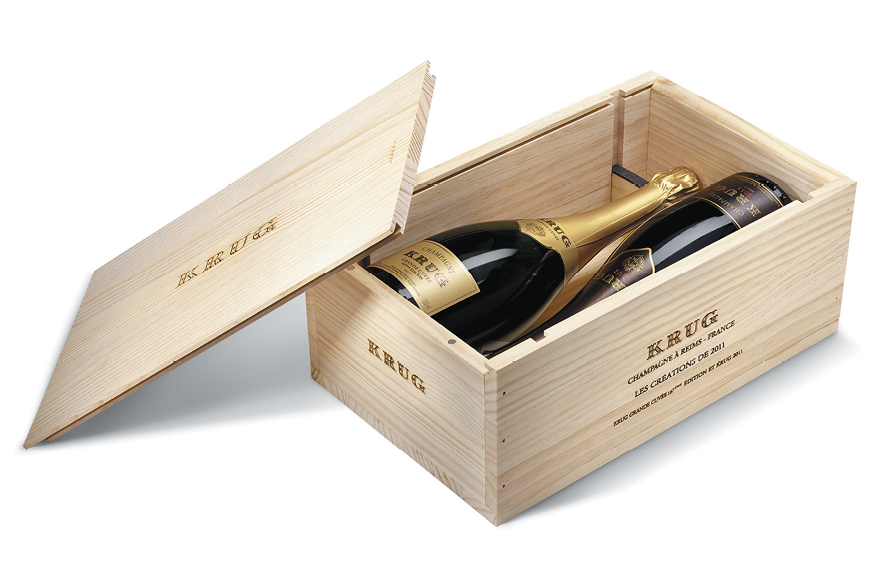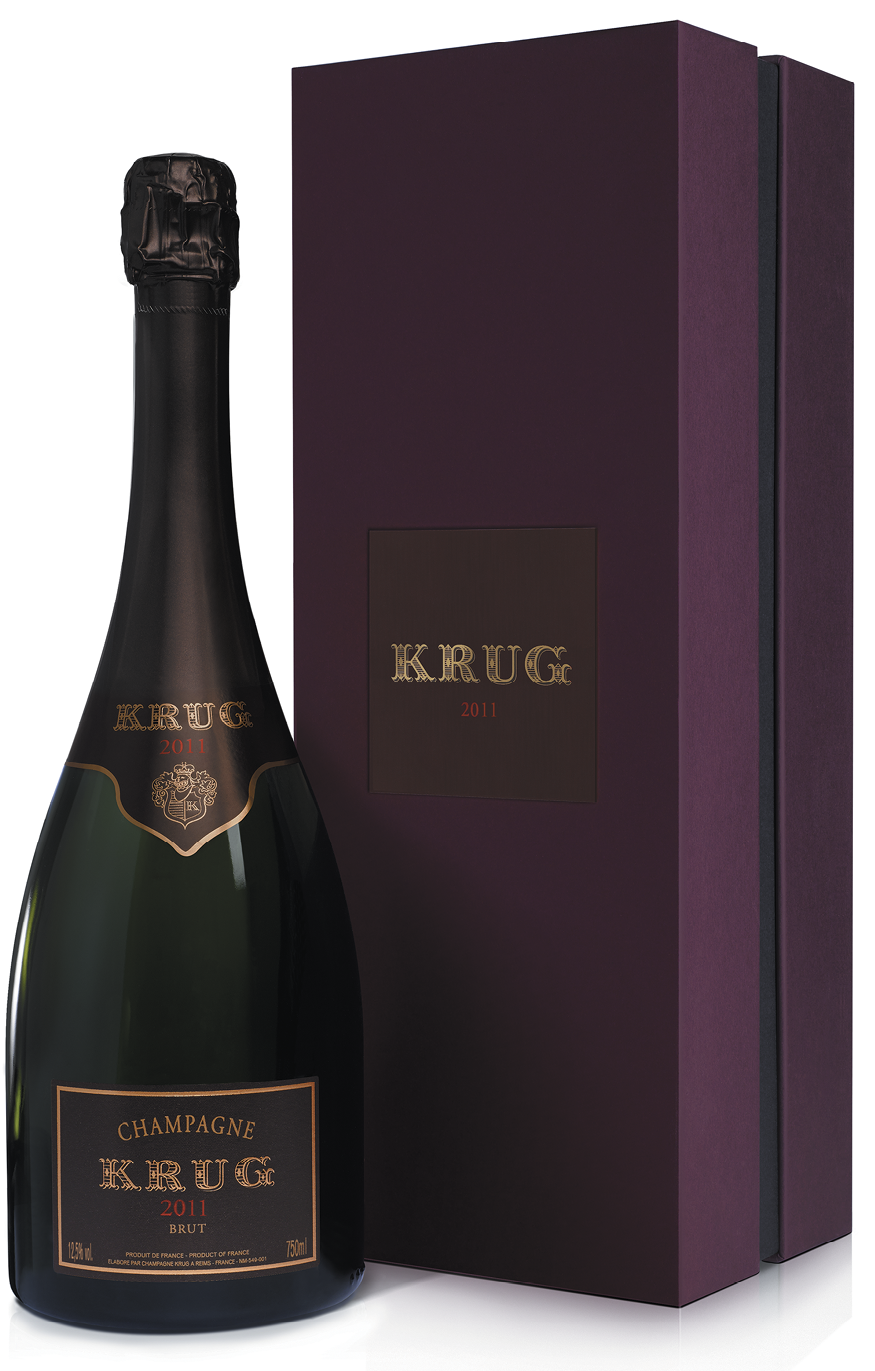- Home
- Media Kit
- MediaJet
- Current Issue
- Past Issues
- Ad Specs-Submission
- Reprints (PDF)
- Photo Specifications (PDF)
- Contact Us
- PRIVACY POLICY
- TERMS OF USE
![]()
ONLINE
![]()
ONLINE

The House Of Krug
Editors’ Note
Manuel Reman began his career at the Boston Consulting Group as a Strategy Consultant before making his passion a profession by joining Moët Hennessy over 18 years ago. Reman was named President of the House of Krug in 2022 at the age of 44. He began at Moët & Chandon in 2004 as Head of Special Projects. From there, he moved to Industrial & Grape Strategy in 2007 before joining the LVMH Holding’s Financial Controlling department in 2010. Two years later, he returned to Champagne and began working in Production for Moët & Chandon, Dom Pérignon, Mercier, and Ruinart where he managed a team of 450 people and oversaw all operations from bottling to labeling. Reman’s journey then led him to Barcelona, where he served as Managing Director of Moët Hennessy Iberia for the next three years, looking after the Spanish and Portuguese sales and marketing teams. In 2019, he returned to France to become President of Moët Hennessy Champagne Services (MHCS), the entity mutualizing quality control, technical services, finance, R&D and supply chain for all Moët Hennessy Champagne Maisons (Moët & Chandon, Krug, Ruinart, Dom Pérignon, Mercier and Veuve Clicquot). He also worked with growers and coordinated groupwide grape purchasing strategies to ensure consistency between the Maisons. Since 2020, he is the representative of the LVMH Champagne Maisons at the Comité Interprofessionnel du Vin de Champagne (CIVC) where he serves not only the group, but the Appellation as a whole. In April 2022, Reman became President of Krug, where he is focused on ensuring the House perpetuates the dream of its founder with a new Édition of Krug Grande Cuvée each year. In his twofold role with the CIVC, his priorities also revolve around sustainable viticulture and protecting biodiversity in the Champagne region. Reman is a graduate of École Polytechnique and earned an MS degree from the International Organization of Vine and Wine.
House Brief
When Joseph Krug established the Champagne House bearing his name in 1843, driven by his understanding that the true essence of champagne is pleasure itself, his dream was to craft the very best champagne he could offer, every single year, regardless of annual variations in climate. He went beyond all known boundaries of champagne creation, founding a House where all champagnes would be of the same level of distinction. The House of Krug (krug.com) was founded in November 1843, and the first Krug harvest took place in 1844, when Joseph Krug composed the first realization of his dream, and Krug Grande Cuvée was born. The first re-creation of Krug Grande Cuvée – the first Édition – was therefore composed around the harvest of 1845. Every year a new creation, a sole blend, a unique bottling – thus a new Édition of Krug Grande Cuvée – is created. The Édition number is the number of times this act of creation has happened, which also corresponds to the number of years in the House of Krug the founder’s dream has been re-created. Once crafted, the bottle enters Krug’s cellars to rest for around seven years. Today, the House offers six champagnes, all of the same undisputed quality, each illustrating a different expression of nature.

2011 Champagne Krug
Will you discuss Krug’s heritage and what have been the keys to the leadership of Krug over the years?
Krug is 180 years old, and it has been one of the most renowned houses in Champagne from early on. When Joseph Krug founded Krug in 1843, he had a vision to create something that did not exist. This vision has continued throughout Krug’s history, and I think that this consistency is one of the things that has made Krug a leader. It started with a dream and each generation has worked to fulfill that dream.
Champagne had been considered to be a product that is experienced for a celebration, but more and more consumers are viewing champagne as not only a celebration product, but also as a wine that offers tasting emotions. There is a diverse range of champagne in the market and each time a consumer experiences champagne, it is a discovery. Champagne is to be paired with food and this is becoming better understood. It is a constant journey with the consumer, and while many times this journey starts with having champagne as part of a celebration, it progresses as a drink to enjoy with meat or fish. It is our responsibility as a leader in the industry to continue to build this awareness with consumers.
How does champagne creation take a music approach at the House of Krug?
Champagne is about emotion, similar to how music is about emotion. Krug is always looking for ways to enhance the tasting experience and there is increasing research indicating that hearing – and the music we listen to – has an impact on how we perceive taste. Over the years, Krug has partnered with musicians across various genres to craft pairings that reflect the compositions and the sensory experience of the champagne. It is exciting to have musicians come to the House of Krug to experience the champagnes, and then to return to their studios and create music that represents the emotions that they felt during the tasting.

How has Krug balanced the use of technology with the hand touch and craftsmanship it has been known for over the years?
We love technology at Krug, even though we are one of the most traditional houses. We have been implementing technology while at the same time making sure it does not hamper our craft. We recently opened a new facility that fully respects the tradition of the craft, but also uses technology to make it a safer place for our workers.
We are also very committed to sustainability since we see it every day in the vineyards. Krug is focused on reducing our carbon footprint as well as reducing the weight of our bottle and making all of our packaging 100 percent recyclable. We transport every bottle by boat or train or small truck, but nothing by plane. We have also turned our vineyard to be organic and in 2024 it will be the first harvest with organic grapes.
We all feel so fortunate to be working at Krug and it is our responsibility to preserve the brand for generations to come.
Did you know at an early age that you wanted to pursue a career in the wine industry?
I started as a strategy consultant, and after a few weeks I realized it was a mistake. While the work was interesting, I was not passionate about it. I was 23 years old at the time and I knew I had a passion for wine as I was spending weekends in vineyards and learning about the industry, so I decided to switch my career. It turned out to be a great choice as I have been able to follow my passion.
How do you approach your role leading the House of Krug?
When I was appointed CEO, I felt the responsibility of the role leading a brand that had such a strong history and heritage. Krug has gone through the good times and difficult times the world has experienced over the years, and every generation has a responsibility to take care of the House of Krug so it will continue to fulfill its mission. It takes teamwork and we have a great team at Krug. I see myself as a conductor who makes sure everyone is on the same page and working together, and then to support our team in any way necessary to achieve our goals.
With all that the House of Krug has achieved, how important is it for the team to take moments to reflect and celebrate the wins?
Krug’s mission is to help people experience emotion and joy, so we should apply this to ourselves as well. We take every opportunity to celebrate as a team and with our families – celebration is key. We need to do our work seriously, but not take ourselves too seriously. We are here to make people happier, and that is something to celebrate.![]()